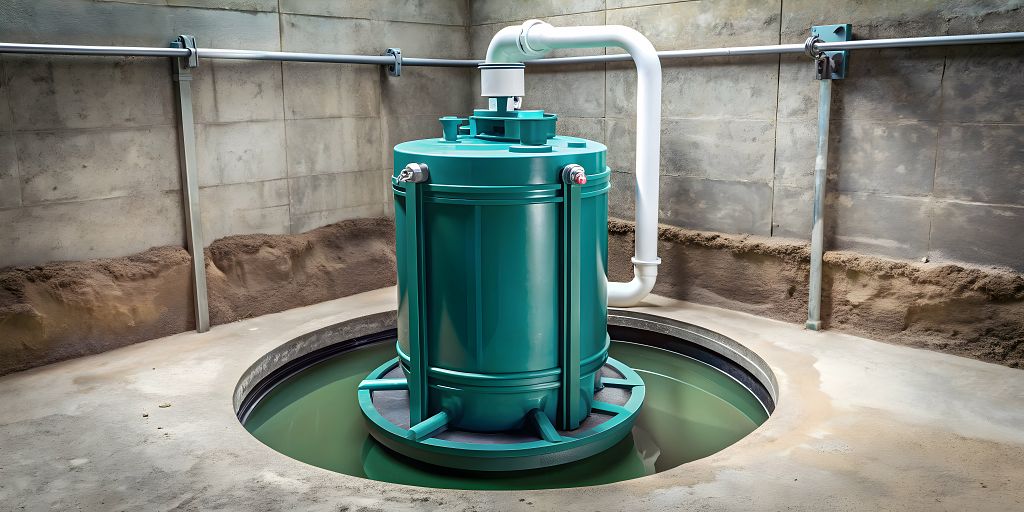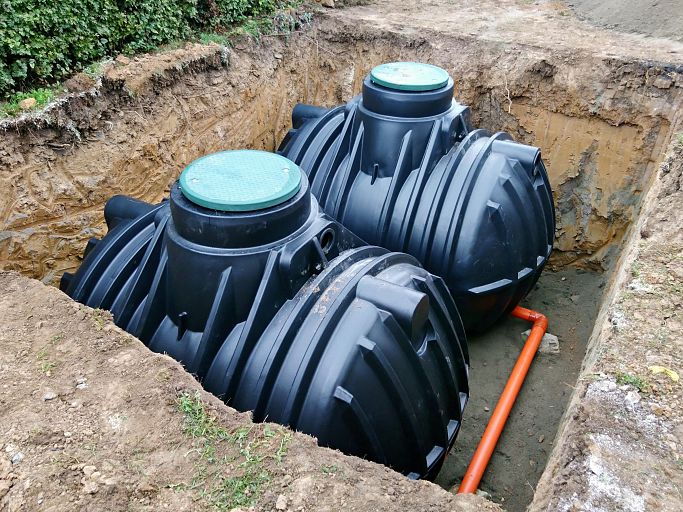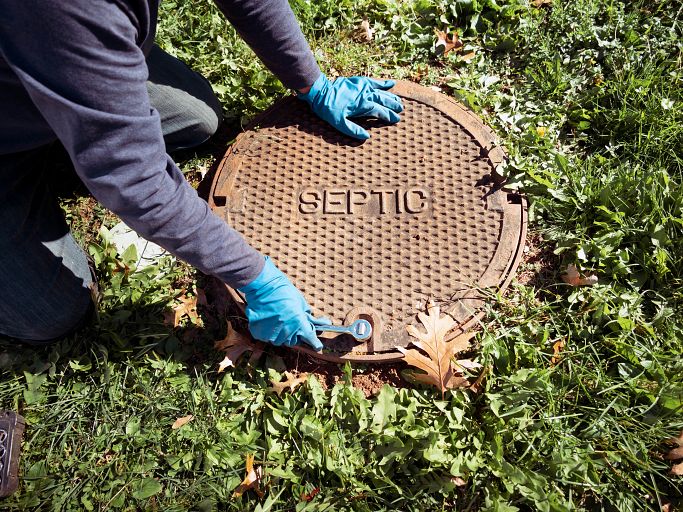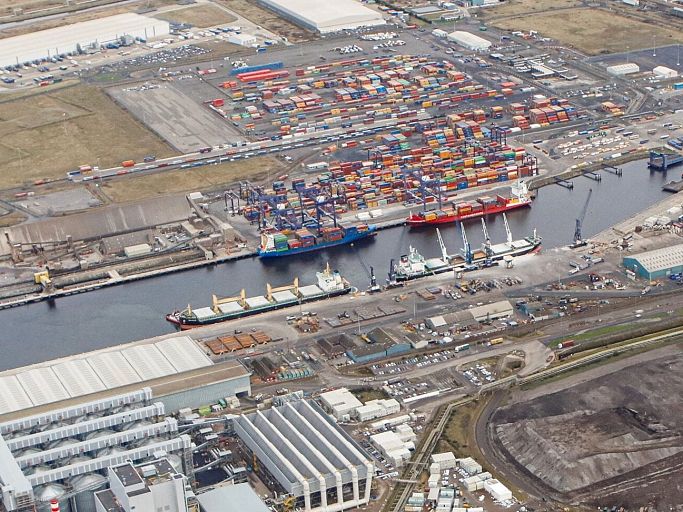What is a Sewage Treatment Plant and How Does it Work?
20th January 2025
in sewage
Author: Jack Dunn

Sewage treatment plants are an important part of sanitation infrastructure, and provide an essential service for homes, businesses and the environment. They help manage the disposal of wastewater, ensuring it’s treated effectively before being released back into the environment. In this edition of the Tanks R Us blog we’ll explore what a sewage treatment plant is, how it works and why it’s crucial.
What is a Sewage Treatment Plant?
Essentially this is a facility designed to treat wastewater, including water from homes, businesses, industrial sites and stormwater run-off. The treatment process removes contaminants, solids and harmful pathogens from the wastewater, and makes it safe for discharge into local watercourses or for non-potable reuse. Sewage treatment plants are often used in areas where properties are not connected to the public sewer system, so they’re an essential for remote or rural locations.
There are different types of brands for sewage treatment plants, with each designed to meet the needs of specific environments and usage.
- Vortex sewage treatment plants: Utilise a natural, vortex-based flow pattern to oxygenate and treat sewage, enhancing the breakdown of organic matter and the removal of pollutants.
- Quantum sewage treatment plants: Typically focus on energy efficiency and minimal environmental impact, producing high-quality effluent suitable for discharge or reuse.
- Harlequin sewage treatment plants: Reliable and efficient wastewater treatment solutions designed for domestic and commercial applications. These systems use advanced aeration technology to treat sewage effectively.
Each type has its own benefits. For a more detailed guide on the different types of sewage treatment plants, visit Tanks R Us.
How Does a Sewage Treatment Plant Work?
Sewage treatment involves several stages to remove solid waste, organic material and harmful pathogens from wastewater.
- Preliminary: The first step in the sewage treatment process is to remove large debris (eg. sticks, leaves, plastics and other non-biodegradable materials). This is done using a coarse screen or grating. The wastewater then passes through a smaller screen or grit chamber where sand, gravel and other smaller particles are removed, helping to prevent clogging in the later stages of the treatment process.
- Primary: Wastewater enters a large tank or settling chamber where the heavier solid elements settle to the bottom. This process, known as sedimentation, separates solids from the liquid. The liquid component is then passed on to the next stage, while the sludge that has settled at the bottom is pumped out for processing or disposal.
- Secondary: The secondary treatment phase involves the biological breakdown of organic matter using bacteria and microorganisms that consume it. In aerobic treatment plants air is introduced to help oxygenate the water, which in turn supports the growth of these beneficial bacteria. There are different methods used in secondary treatment, including activated sludge systems, trickling filters and biofilm reactors, which vary in how they facilitate microorganisms and manage the wastewater.
- Tertiary: This optional additional step further purifies the water by removing remaining contaminants (including bacteria, viruses and nutrients like nitrogen and phosphorus). The tertiary stage often involves processes such as filtration, chemical treatment or disinfection using UV light or chlorine. While not always necessary, tertiary treatment ensures that wastewater is safe for discharge into the environment, especially in areas where water quality standards are strict.
- Sludge: The solids or sludge removed during primary and secondary treatment need to be treated separately. Sludge treatment involves processes like anaerobic digestion, where bacteria break down the sludge in a low-oxygen environment. The resulting biogas can sometimes be used for energy production, so the whole process can actually be more sustainable than you might first imagine. Once treated, the sludge can be safely disposed of or could be used as fertiliser in agricultural applications.
Benefits of Sewage Treatment Plants
There are several key benefits to sewage treatment plants. Below are the two most important.
- Environmental: Sewage treatment plays a crucial role in protecting the environment. By treating wastewater before it’s released into streams, rivers, lakes or the sea, these treatment plants help to prevent water pollution, safeguard aquatic / marine wildlife and maintain the health of ecosystems. Proper treatment means that potentially harmful pathogens and contaminants don’t enter the general water supply.
- Economic: Treatment plants also offer economic benefits. They can reduce the need for costly water treatment downstream, as treated wastewater is often higher quality than untreated sewage. Treated water can also, in some cases, be reused for irrigation or industrial processes. Investing in a treatment plant for a development or property can increase its value, particularly in areas without access to a public sewer system.
Why Choose Tanks R Us for Your Sewage Treatment Solutions?
At Tanks R Us we provide high-quality sewage treatment plants tailored to your specific needs. Whether you're looking for a system for a residential property, business or commercial development, our tanks and treatment solutions ensure you’ll find exactly the right option to fit your needs. Our expertise, combined with our thorough selection of durable, high quality and cost-effective products, means great solutions for your wastewater management needs. For more information on the options available for you, visit our Sewage Treatment Plants page.
Sewage treatment plants are essential for managing wastewater, ensuring the safe disposal of sewage and protecting the environment. Whether for residential, commercial, or industrial use, a properly maintained sewage treatment plant is a key investment. Make the right one with Tanks R Us.
One of the largest selections of tanks in the UK
Chat online or call us today on 01469 531229
Related Products
More Articles

What’s the Difference Between a Septic Tank and a Sewage Tank?
22nd September 2022 in sewage

Why does your business need a sewage treatment tank?
14th August 2023 in sewage

Tank Hire: An Introduction and Case Study
3rd October 2023 in oil

Effluent Tanks & Sewage Treatment Tanks: What’s the Difference?
7th December 2023 in sewage
Help
About Us
My Account
Newsletter Sign Up
Inspiration direct to your inbox, please enter your email below...
© Tanks R Us. All rights reserved. Registered in England. Registration number. 05804332. VAT number 364402764